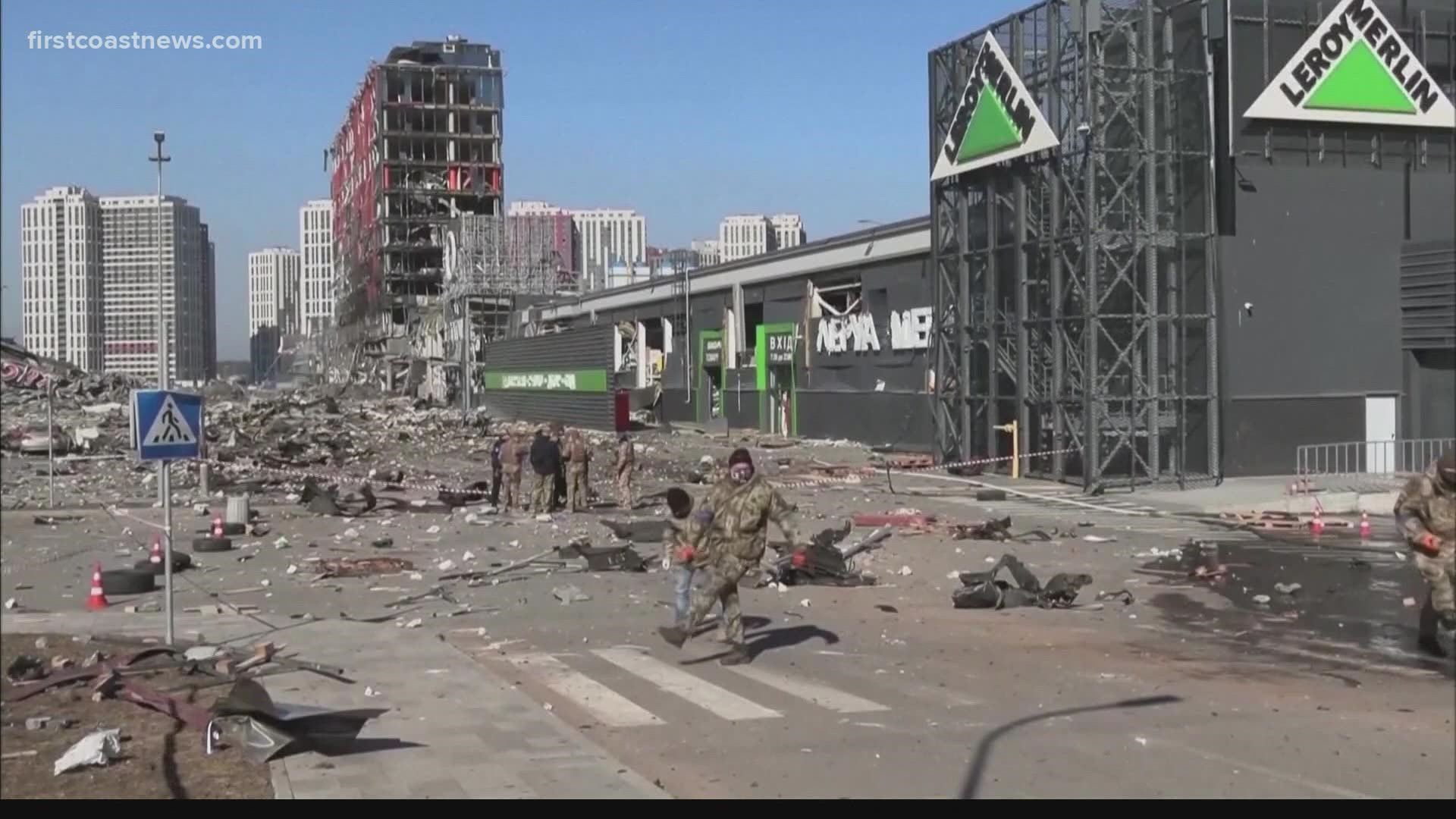JACKSONVILLE, Fla. — It's a complex question, but we asked our First Coast News National Security Expert, Vice Admiral Rick Snyder, retired, to talk about who is winning the war, Ukraine or Russia?
Admiral Snyder has a long history of service at NAS Mayport and at high levels of the Pentagon and at NORAD.
First Coast News: "At this point, what surprises you about the war?"
Admiral Snyder: It is a hard question worth exploring. Both sides are losing, but there are advantages and disadvantages on both sides at this point. What has surprised me is the fierce, heroic defense by the Ukrainian people, all the people, and not just the military. On the Russian side, I am surprised by their obvious lack of planning for the fierce resistance. The Russian brutality is horrendous, but not surprising. They've done it before. The real surprise to me is that Ukraine is still a functioning, free nation.
First Coast News: What does the destruction of Mariupol say about winning or losing the war?
It's a port city in the Southeast part of Ukraine. The Russians have basically pulverized the city, and the destruction includes a steel factory, one of the largest in Europe.
Admiral Snyder:
What's happening in Mariupol is clearly a loss for both sides. The Russians are destroying an important Ukrainian and killing innocent civilians. However, it does clearly show Russian frustration, maybe even desperation. They've resorted to striking civilian targets and valuable industrial infrastructure. For the Ukrainians, holding Mariupol for this long is a win, but it is coming at a devastating cost.
First Coast News: Let's talk weapons. How could the Russian hypersonic missile impact the war?
President Biden has verified the Russians have launched a hypersonic missile into western Ukraine. It's the first use in combat of this type of weapon, which can travel five times the speed of sound, making it almost impossible to shoot down. How does this impact the war?
Admiral Snyder:
Tactically, the use of hypersonic weapons does not have a greater affect on the war than conventional missiles. Russia has shown it can inflict tremendous damage with conventional missiles alone. It does highlight the Russian advantage more broadly in their military capability. It's also another signal to NATO that Russia does have the capability to strike deep into NATO territory.
First Coast News: Let's examine military size.
The Russian military is four times the size of Ukraine's military. But, as of yet, they haven't taken Kyiv, the capital. Now, though, Russia is bringing in soldiers from Chechnya.
What could be the impact?
Admiral Snyder:
Some of the Chechnya fighters known for their fierce and brutal fighting, and they have experience in urban warfare. That could be helpful for the Russians if this war moves into the cities of Ukraine, but their brutality also increases the likelihood of continued atrocities against the citizens of Ukraine. Bringing outside forces into the fight is this another indication of Russian frustration and desperation.
First Coast News: The clock is on whose side now?
Admiral Snyder:
The clock is on Ukraine's side. Every tick of that clock will bring additional death and destruction, but it also means that Ukraine is still fighting, free nation, supported by almost the entire rest of the world, and negotiation remains a viable end to this war.
First Coast News: Overall, who's winning the war?
Admiral Snyder:
No one is winning this war.
If you have questions about the war in Ukraine, we're happy to take them directly to Admiral Snyder. Just email First Coast News reporter, Jeannie Blaylock.
More about Admiral Rick Snyder:
38 years in the United States Navy retiring as a 3-star Vice Admiral. Last assignment was as the Department of the Navy Inspector General. A naval aviator with nearly 3,000 helicopter flight hours and two assignments in command of Mayport based helicopter squadrons. Commanding Officer of USS BATAAN, an 840-foot amphibious assault ship, and later commanded all of the Navy’s amphibious forces on the East Coast. Served for nearly seven years at the most senior levels in the Pentagon and at U.S. Northern Command/North American Aerospace Defense Command.


